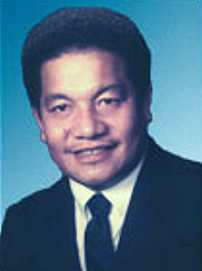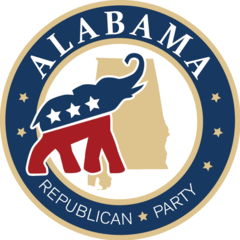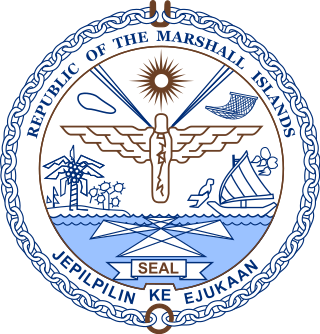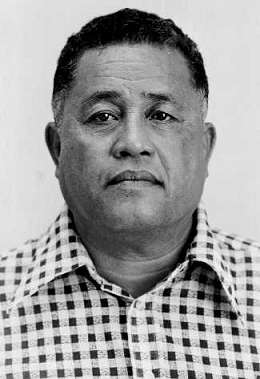Related Research Articles

The politics of the Federated States of Micronesia (FSM) takes place in a framework of a federal assembly-independent representative democratic republic. The President of the Federated States of Micronesia is both head of state and head of government. Executive power is exercised by the president and his cabinet, while legislative power is vested in both the president and the Congress. The judiciary is independent of the executive and the legislature.
A constitutional convention is an informal and uncodified tradition that is followed by the institutions of a state. In some states, notably those Commonwealth of Nations states that follow the Westminster system and whose political systems derive from British constitutional law, most government functions are guided by constitutional convention rather than by a formal written constitution. In these states, actual distribution of power may be markedly different from those the formal constitutional documents describe. In particular, the formal constitution often confers wide discretionary powers on the head of state that, in practice, are used only on the advice of the head of government, and in some cases not at all.
Elections in the Philippines are of several types. The president, vice-president, and the senators are elected for a six-year term, while the members of the House of Representatives, governors, vice-governors, members of the Sangguniang Panlalawigan, mayors, vice-mayors, members of the Sangguniang Panlungsod/members of the Sangguniang Bayan, barangay officials, and the members of the Sangguniang Kabataan are elected to serve for a three-year term.

John Richard Haglelgam was the second President of the Federated States of Micronesia.
The Constitution of the State of New York establishes the structure of the government of the State of New York, and enumerates the basic rights of the citizens of New York. Like most state constitutions in the United States, New York's constitution's provisions tend to be more detailed and amended more often than its federal counterpart. Because the history of the state constitution differs from the federal constitution, the New York Court of Appeals has seen fit to interpret analogous provisions differently from United States Supreme Court's interpretation of federal provisions.

The Legislature of the Marshall Islands has 33 members, elected for a four-year term in single-seat and five multi-seat constituencies. The last election was November 18, 2019. Elections in the Marshall Islands are officially nonpartisan, but most members of the Nitijeļā are affiliated with one of the four active political parties in the Marshall Islands: Aelon Kein Ad (AKA), Kien Eo Am (KEA), United People's Party (UPP), and United Democratic Party (UDP).

Indirect presidential elections were held in the Federated States of Micronesia on May 11, 2007.

The Alabama Republican Party is the state affiliate of the Republican Party in Alabama. It is the dominant political party in Alabama. The state party is governed by the Alabama Republican Executive Committee. The committee usually meets twice a year. As of the February 23, 2019 meeting in Birmingham, the committee is composed of 463 members. Most of the committee's members are elected in district elections across Alabama. The district members are elected in the Republican Primary once every four years, with the most recent election for the committee having been on June 5, 2018. The new committee takes office following the general election in November 2018. In addition, all 67 county GOP chairmen have automatic seats as voting members. The state chairman can appoint 10 members. Each county committee can appoint bonus members based on a formula that theoretically could add 312 seats, although that formula currently calls for only about 50 seats.

Iroij Litokwa Tomeing was the President of the Marshall Islands from January 2008 until October 2009.

Parliamentary elections were held in the Federated States of Micronesia on 8 March 2011, alongside a three-part referendum. As there were no political parties, all 34 candidates ran as independents. For the first time in the country's history, two women ran for election, both in Chuuk State. However, neither was elected.

Constitutional Convention elections were held in the Marshall Islands in November 1976.

Parliamentary elections were held in the Federated States of Micronesia on 5 March 2019, alongside a referendum on calling a Constitutional Convention. All 14 seats in Congress were up for election, and all 13 incumbents standing for re-election were returned to Congress.

The Congress of Micronesia was a bicameral legislature in Trust Territory of the Pacific Islands from 1964 to 1979.

General elections were held in Western Samoa on 15 November 1957.
Parliamentary elections were held in the Trust Territory of the Pacific Islands on 19 January 1965.
Parliamentary elections were held in the Trust Territory of the Pacific Islands on 5 November 1974. Carmen Bigler became the first female member of Congress after being elected to House of Representatives from the Fifth District of the Marshall Islands.
Carmen Milne Bigler is a Marshallese educator, civil servant and former politician. She was the first and only woman to serve in the Congress of the Trust Territory of the Pacific Islands.
Iroij Namo Hermios was a Marshallese chief and politician. He served as a member of the House of Representatives of the Trust Territory of the Pacific Islands between 1965 and 1968, and as a member of the Marshall Islands Legislature until his death.

Dwight Heine was a Marshallese politician. He was both a member and speaker of the Marshall Islands Congress, Congress of Micronesia and the House of Representatives of the Trust Territory of the Pacific Islands, before serving as District Administrator of the Marshall Islands from 1965 to 1969.
Mary Heine Lanwi is an educator, activist, and promotor of traditional handicrafts in the Marshall Islands. A female pioneer on the islands, she has been described as "perhaps the first Marshallese woman to begin employment outside the home." In 1974, she was the only woman elected to serve as a delegate to the Micronesian Constitutional Convention.
References
- 1 2 3 Slowly to independence, or something Pacific Islands Monthly, July 1974, p13, 112
- 1 2 Micronesia's future in the melting pot Pacific Islands Monthly, June 1974, p13
- ↑ Interview: Mary Lanwi Micronesian Reporter, Third Quarter 1975, p4
- ↑ Marshalls' Election Upheld Highlights, 15 May 1975
- ↑ News in a Nutshell Pacific Islands Monthly, September 1975, p6
- 1 2 3 4 Micronesians' blue-print making 'one nation of many islands' Pacific Islands Monthly, December 1975, pp6–8